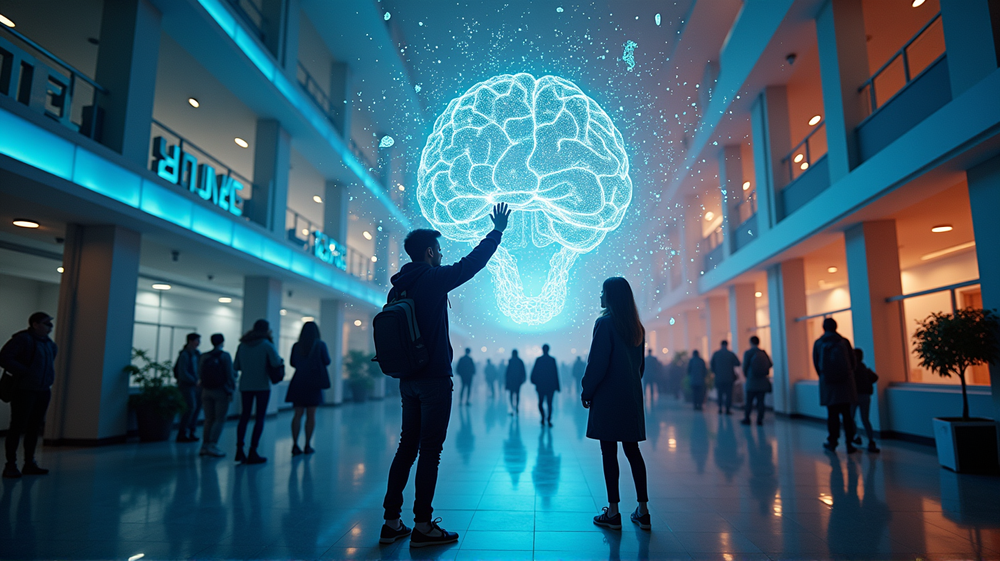In a world where the pressures of academia and social expectations weigh heavily on students, a beacon of hope emerged during a symposium at Dartmouth College. Experts, students, and professionals gathered to explore how artificial intelligence (AI) might play a revolutionary role in enhancing student wellness and mental health.
Unveiling Tech-Powered Wellness Solutions
The event was a melting pot of ideas, led by the visionary Andrew Campbell, who sparked dynamic discussions on whether AI could be the key to helping at-risk students build agency and resilience. As stated in Dartmouth, AI’s transformative potential was the symposium’s focal point, examining its role in creating empathetic and accessible support paths for students.
The Reality of Student Mental Health
With alarming statistics presenting a decline in youth mental health, the need for innovative interventions was apparent. Despite modest improvements, the National Healthy Minds Survey highlighted persisting challenges. Estevan Garcia, Dartmouth’s Chief Health and Wellness Officer, emphasized the importance of strategic plans, including “Commitment to Care,” underscoring Dartmouth’s dedication to holistic student support.
Bridging the Gap with Innovative Interventions
At the heart of the discussions was the importance of co-creating solutions with students. Key insights from student panelists revealed the critical need for community and peer support—a sentiment echoed by faculty who integrate mental health activities into their curricula. Lourning from these stories heightens the likelihood of tech interventions making meaningful impacts by resonating with student needs.
Technology as an Ally, Not a Replacement
Panel debates revealed excitement and caution. While acknowledging that AI cannot replace the human touch, experts like Ellie Pavlick illustrated the power of AI-driven tools like language models and digital interventions to fill crucial gaps. Collaborative endeavors, incorporating the perspectives of the youth they aim to support, emerged as a vital strategy.
Future-Focused Approaches for Student Well-Being
As AI promises to enhance communication, predict mental health challenges, and offer digital companionship, concerns about accessibility, inclusivity, and safety were paramount. Experts urged for a human-centric approach, leveraging technology as a supportive ally rather than a standalone solution.
Calling for Global Collaboration
The symposium anticipates worldwide collaboration, with upcoming events designed to deepen the dialogue on youth well-being. Led by minds like David Blanchflower, these initiatives aim to tackle a universal decline in happiness and foster shared solutions within and beyond academic environments.
This convergence of technology, student experiences, and educational strategy at Dartmouth paves the way for a compassionate, AI-supported landscape in higher education. As more students face the complexities of modern life, clear paths to well-being are not just aspirational—they are attainable through collaboration and innovation.













